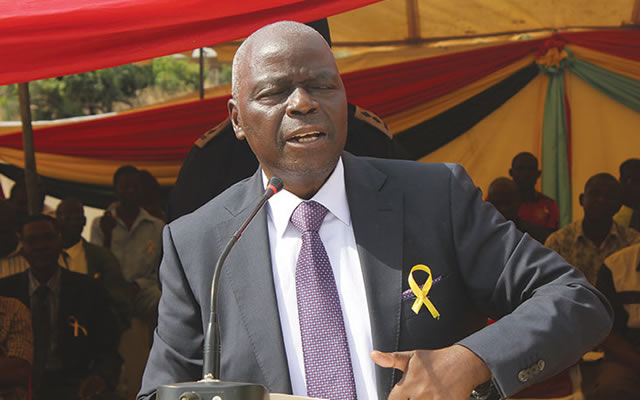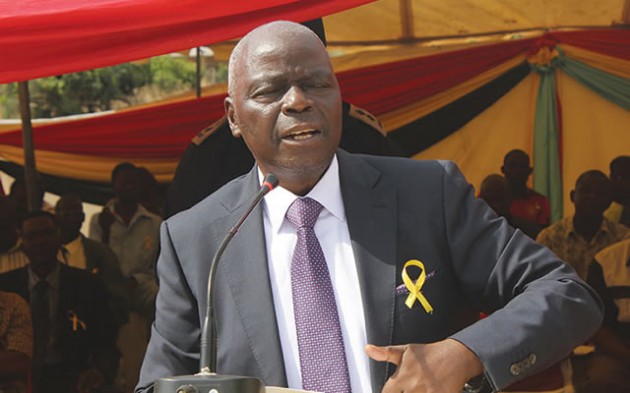Another Mavhaire, Mutezo deal exposed

 Felex Share Herald Reporter
Felex Share Herald Reporter
Ousted Energy and Power Development Minister Dzikamai Mavhaire and his deputy Engineer Munacho Mutezo, pushed Zesa Holdings to tender 300 000 smart meters for non-existing properties, raising suspicion that the pair was angling to financially benefit from the deal.
It has also emerged that there are not more than 80 000 points countrywide that require smart meters and Zesa management is now contemplating reducing the quantities or cancelling the $120 million tender. More than 227 companies have already bought tender documents for the project and the tender closes next month.
Only five companies will be shortlisted.
Some of the prospective companies (names supplied) had reportedly paid kickbacks to one of the ministers – who were last week fired from Government for spending their time on graft and factional politics – for them to get the tender.
Zimbabwe Electricity Transmission and Distribution company managing director Engineer Julian Chinembiri, yesterday said the 300 000 smart meters did not tally with the points on the ground. He said smart meters were ideal mostly in industrial areas, points that had a significant load of around 1 000kWh per month.
As such, Eng Chinembiri said, they were having a “re-look” at the project.
“There are no such points in the country and we were only targeting about 57 000 smart meter installations. The rest would be pre-paid meters,” he said.
“ZETDC would prefer to install smart meters at points where it would make business case to install such gadgets. These are points with significant load around 1 000kWh/month, with potential to shift load without affecting basic life of consumers (load management) and customers with excess renewable energy generation capacity. You derive more benefits in industries not households.”
Expectations were that the smart metering technology, which reports to the centre any meter by-passing, would curb power theft and increase revenue generation. All along, the power utility has been installing prepaid meters, with 522 000 units having been installed since August 2012.
Eng Chinembiri said the power utility would consult with the newly appointed Minister Samuel Undenge to see if it was still viable to continue with the tender.
A Zesa source said the reasons by Eng Mutezo and Cde Mavhaire to push for 300 000 smart meters knowing that Zesa did not have readily available points was to push for “kickbacks, which is dependent on the quantity of meters awarded”.
The former ministers had argued that the number would cater for future connections but engineers said technology was fast changing and the smart metering technology would have changed in the next few months. The source said the ZETDC board had approved that the power utility first have a pilot project for 10 000 smart meters but the resolution was quashed by the two former ministers.
“ZETDC board had approved for a 10 000 pilot project but this made the shareholder very angry and the board decision was overridden even though it made business sense and is in line with best practice,” said the source.
“From a business perspective, it is not in ZETDC’s or the country’s best interest to go on a mass roll-out for smart meters as the costs will outweigh the benefits.
Other countries in the regions including South Africa have only done pilots and are yet to make decisions to roll-out.”
Smart meters have been rolled out in first world countries with most African countries still in the testing phase.
Asked on the reasons why they refused a pilot project last week, Mr Mavhaire said it was a waste of resources.
“Zesa has technical people and you can’t have an experiment wasting people’s money on such experiments. They should prove that they have technical people not to do experiments with people’s money.”
Eng Mutezo could not be reached for comment yesterday. The Zesa source said instead of wasting money on smart metering, resources should be channelled toward the development of generation capacity and refurbishment of dilapidated infrastructure to improve availability and reliability of power supply.
“On the metering side, ZETDC wants metering technology that enables it to collect revenue upfront and the standard pre-payment meter is well suited to ZETDC’s requirements,” said the source.
“Smart metering meters are a luxury, which a struggling utility like ZETDC cannot effect at this point in time. Just like other technologies such as cellphones, the metering technology is fast changing and the reason for deploying smart meters in preparation for future use is not valid.”








Comments